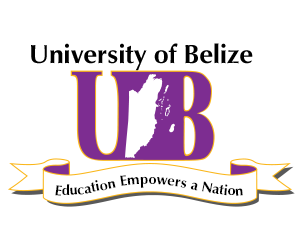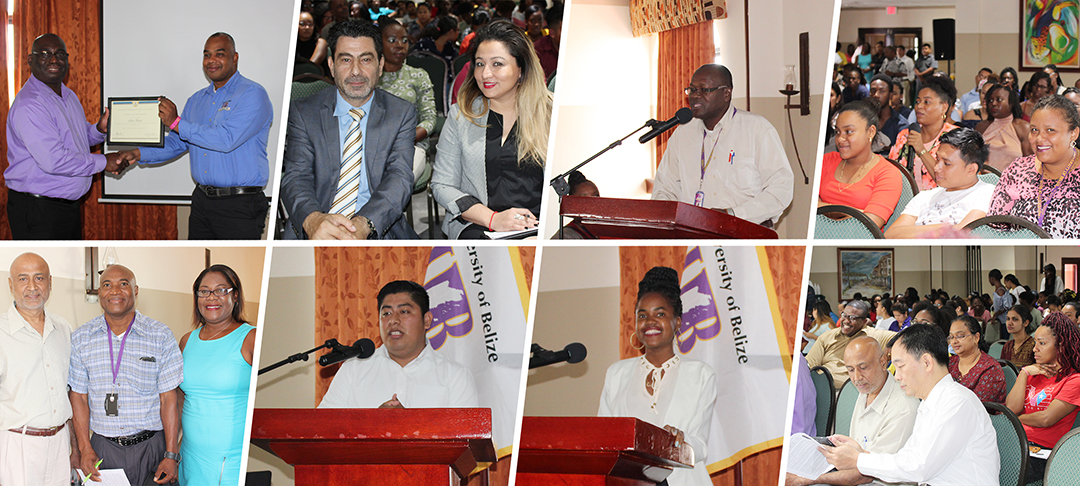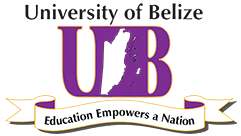- Version
- Download 386
- File Size 1.82 MB
- File Count 1
- Create Date May 17, 2019
- Last Updated May 28, 2019
UB Imprint Vol 51: UB - Stimulating Development through Research
A striking feature of the Caribbean in the post-colonial era has been the expansion in university education. The pace and complexity in which the global society has advanced have illuminated the urgent need within the region to realign the design and infrastructure of our education with the needs of its societies and of the global society our educational systems are intended to serve. While universities, through research and its subsequent effects on policy implementation and program development, have proven to be powerful drivers of global innovation and economic development in places like the United States, this function is salient for a country like Belize, whose status as a middle income and a transitioning country gives it a distinct advantage among its counterparts. In this regard, the role of the University of Belize (UB), – the country’s national and only public university – in stimulating Belize’s economic, technological and social development and in building a knowledge-based society, which is able to seize opportunities and grapple with challenges presented by globalization, is particularly essential.
In the past two years, UB has demonstrated its ability, and more importantly its willingness, to break free from antiquated paradigms to achieve meaningful progress in Belize’s development as outlined in its strategic plan, A Transformational Leap: Vision 2022. Nowhere is this more evident than through our Annual Research Symposiums.
On April 25th, 2019, the University of Belize’s Faculty of Management and Social Sciences (FMSS) once again demonstrated research as the imperative to foster innovation, growth and social progress when it held its 9th Annual Research Conference, under the theme ‘Engaging Mind, Empowering Success.’ Notable research presentations included:
• Impact of Microfinance on entrepreneurial development in Belize
• Alcoholism at the University of Belize in Punta Gorda
• Social Security and Belmopan market day vendors
• Relevance of B. Sc in Hotels and Resorts
• The enemy within: Selective governance practices, Belize Greatest Security Threat
Students and faculty members presented practical and policy oriented research on a range of issues and topics of national importance, revealing just how deeply contextualized development is; that is, how it is largely based in particular sectors, in particular geographies, in particular skillsets and capacities, in particular networks and in particular industries. In other words, the University demonstrated, through its Research Symposium, that development isn’t simply investing in education and leaving it to the markets. Instead, development is focusing on how to build capability in particular spaces to achieve desired outcomes.
For example, Mr. Ermelito Bol, a student researcher, presented on “Alcoholism at the UB in Punta Gorda.” Through his research, the survey literature indicated that, on average, the use and abuse of many drugs, including alcohol (and getting drunk), disproportionately affected Mayan students than any other demographic on the UB PG campus. Factors such as self-esteem, association and identification with abusing peer clusters and several other isolated social/psychological variables were the most influential factors in causing persistent and serious substance abuse and poly-substance abuse among UB’s Mayan students in PG. Moreover, this research also revealed that Belize has very little information regarding its Mayan population – a people and a culture who have contributed significantly to Belize and to its development, pre and post-independence. And while it can be argued that the researcher’s data sample was limited, it can, however, give policy makers, and Belizeans alike, a snapshot of the challenges facing our indigenous communities; which can then stimulate further research for meaningful change within this community.
Another relevant research paper focused on Belize’s development was that of UB student and employee, Mr. Ashton Myers, who explored the relevance of a Bachelor’s Degree in Tourism Management in the Belize hotel and resort sector in the Cayo district. The data set indicated that 81% of employee respondents did not have a Bachelor degree in tourism; instead had only an Associate Degree or Certificate in Tourism. And while eighty-three (83%) of employer respondents supported that graduates with a bachelor degree in tourism management would improve business, it was interesting to note that they were unwilling to compensate employees at the wage required for a first degree. So even though the research highlighted that a Bachelor in Tourism Management allows the sector to contribute to Belize’s economic development, a bottleneck to this achievement is the unwillingness of some employers to pay salaries commensurate with education, training and skills. This, then, goes against the fundamental bedrock of any developing country that education, and in particular higher education, is essential to a nation’s prosperity because the very practice of inappropriate wage compensation makes higher education uncompetitive and discourages the society’s desire to attain higher education – a significant action that speaks directly to the heart of Belize’s current and future well-being and is one that must be addressed by policy makers.
As can be seen, higher education plays a key role in a country’s development; and therefore, understanding the mechanisms through which universities effect development is critical for developing countries. In the case of the University of Belize – Belize’s national and only public university, its role in innovation, research and human capital supply at this critical juncture in Belize’s development is all the more imperative and will allow Belize and Belizeans to fully participate in the solution of national, regional and global problems.






